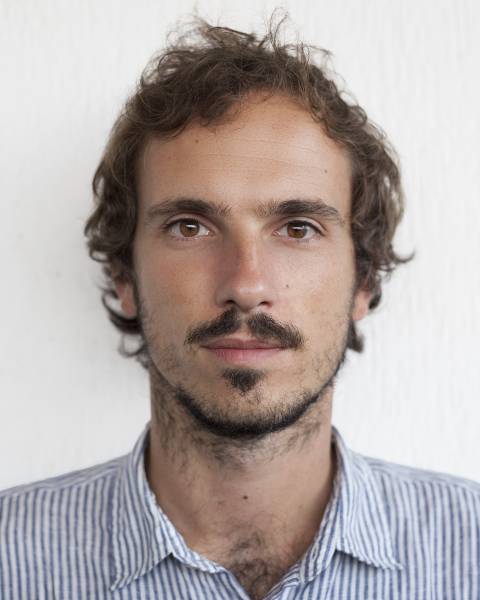
 Annalisa Nicastro
Annalisa Nicastro
Born in 1988. When he was a child, Giorgio Biferali, dreamed of becoming a footballer, an actor, a singer. He confirms that he started reading when everyone stopped saying he had to. He has written many books and continues to do so, among others his debut novel "L'Amore a venti anni" was presented at the Strega Prize in 2018. In the following interview we take a tour with him in some Literary Parks and culture today, arriving at World Human Rights Day.
Giorgio I want start with you from two of the Literary Parks we have in Lazio, one is dedicated to the memory of Pier Paolo Pasolini, at the Ostia seaplane base; the other is in Pico, in the province of Frosinone, and is a tribute to Tommaso Landolfi. You are linked to both literary parks. Can you tell us why? And what is the aspect that you admire most of each of these writers?
I really like the idea of literary parks, it helps readers to focus on the human being who hides behind the writer, to discover the places where the works took shape. In the park dedicated to Pasolini, I remember I was participating in a meeting, which had a particular, almost sacred atmosphere. Unfortunately, I never had the opportunity to visit the park dedicated to Landolfi, but I will do soon, because he is an author I love, to whom I dedicated hours, days while I was preparing my exams and then my thesis at the university.
I have a strange relationship with Pasolini, I love the poet Pasolini, the director, less the narrator, there are times when I agree with him and others when I can't stand him. I was lucky enough to be part of an anthology of short stories inspired by his work entitled Nuvole corsare, edited by Francesco Borrasso and Giuseppe Girimonti Greco, just released in the bookstore for Caffèorchidea.
Your debut novel was presented in 2018 at the Strega Award. How did you live that experience?
The novel had been out for a few days and I was surprised, even if I don't think I ever really realized it. Of that experience I remember above all the editing work with Vanni Santoni and the five months of touring throughout Italy.
You were born in Rome while Nanni Moretti was shooting Palombella Rossa. How close are you and why to Moretti?
I grew up with his jokes, with his idiosyncrasies, with his films. I have always loved his sensitivity, his authentic gaze on things. When, together with Paolo Di Paolo, we wrote a book with him, it seemed to me to relive my childhood, or the afternoons (in May and beyond) in which I discovered myself looking at Michele Apicella.
You have written many pages for young people and you are also an Italian and History teacher in a high school. What more can be done for students, especially at a time like the one we are all experiencing? And how do young people experience this historical period from your point of view?
They are living it badly, like us. It is one thing to be in class, hear the sighs, look into each other's eyes, another is to spend half a day in front of a mosaic of faces forced to listen to you with the mute microphone. On the one hand they realize that they are witnessing a historical moment, on the other they are afraid of losing the best moments of their life, in my opinion it is unsettling, frustrating, but at least they have the opportunity to deal with distance and with loneliness.
What is your relationship with travel?
I really miss traveling. Travel has always been part of my life, travels are among the few things I remember with precision, all of them, since I went to England in the summer during my high school years to my last trip to Paris on February 20 this year, some days before the lockdown. Traveling I have always discovered a side of me that I didn't know before, perhaps because I tend to relax, to let my guard down, to be more vulnerable when traveling. On the other hand, as Manganelli said, "whoever takes a trip risks arriving".
What does pop culture mean today and at what point is our Italian pop culture?
It's simple, it means being popular, but not in the sense that you are famous and everyone knows you, no, in the sense that you are able to communicate with everyone, to be universal, without putting aside quality and content. In Italy there are many who carry on this concept, the first that comes to mind is Alessandro Barbero, who managed to get to the top of the podcast ranking on Spotify talking about Charlemagne, Dante, Napoleon.
On December 10th is World Human Rights Day. What do you hope for the future that can be improved for the rights of every single human being?
I'm afraid to be rhetorical, so I'll tell you that I wish for a little more kindness and authenticity from everyone, to have the courage to go against the grain, to be truly unconventional, to always be, not just when it suits you.